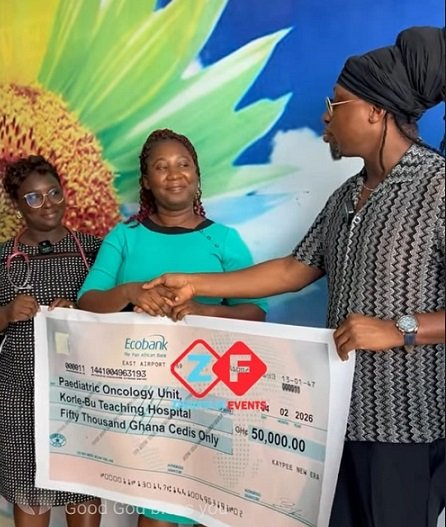News
What does it mean that all things work together for good? (Part two)
“Five times I received from the Jews the forty lashes minus one. Three times I was beaten with rods, once I was pelted with stones, three times I was shipwrecked, I spent a night and a day in the open sea, I have been constantly on the move.
I have been in danger from rivers, in danger from bandits, in danger from my fellow Jews, in danger from Gentiles; in danger in the city, in danger in the country, in danger at sea; and in danger from false believers. 27
I have laboured and toiled and have often gone without sleep; I have known hunger and thirst and have often gone without food; I have been cold and naked.” – 2 Corinthians 11:24–27.
Through it all, God was steadfastly working to bring about good and glorious results.
10. After promising that God works all things together for our good, Romans 8 concludes with the wonderful fact that God trumps everything that comes against Him and those who belong to Him. The Christian is assured that nothing can ever separate us from God’s love:
“Who shall separate us from the love of Christ? Shall trouble or hardship or persecution or famine or nakedness or danger or sword? … No, in all these things we are more than conquerors through him who loved us.
For I am convinced that neither death nor life, neither angels nor demons, neither the present nor the future, nor any powers, neither height nor depth, nor anything else in all creation, will be able to separate us from the love of God that is in Christ Jesus our Lord.” – Romans 8:35–39.
God’s love is everlasting, and His wisdom is infinite. It doesn’t matter who or what attempts to thwart God’s plan; no one and nothing can. God will work all things together for the good of those who love Him. Our decision to align our will with God’s and to always trust Him will be rewarded.
3 THINGS ABOUT ROMANS 8:28
- Romans 8:28 doesn’t mean we can live any way we choose, and God will fix our messes.
Romans 8:28 is a promise for believers. Real believers. Those who are living for Christ. Not those who claim to believe in God but are living like the devil. This verse says to those who love God and are doing their best to obey His commands, “Even though bad/sad/evil/wicked things will touch your life, I (God) will use them to ultimately bring about good, both in your life and in the world.”
- Romans 8:28 tells us God can use all things together for good. He doesn’t say all things are good.
No matter how rose-coloured our glasses are, there’s nothing good about cancer, immoral behaviour, or death. Until Jesus returns and conquers Satan once and for all, sin will continue to drag its poisonous tentacles across our world, damaging and destroying everything in its wake.
This scripture reminds us that although sin and Satan are powerful, God is more powerful; He is able to redeem and restore anything for our good and his glory. All things may not be good, but God can and will use all things for good.
- Romans 8:28 reveals the ultimate good God wants to accomplish in the lives of His children:
As long as we live in this world, people will attempt to reconcile God’s sovereignty with humanity’s suffering. Verses like Romans 8:28 assure us that no suffering is wasted, and God is always at work for our good and His glory.
When we cannot comprehend why trials come and struggle to imagine that anything good can come from them, we can rest in the security that God is in control.
Because of this, we can have hope.
Stay Blessed!
For further inquiries please contact us on Tel Nos. 0302-772013 or 0268130615
Email: saltnlightministries@gmail.com
Website: saltandlightgh.org
Entertainment
Kwaisey Pee honours promise, donates GHC50,000 to Korle-Bu Paediatric Oncology Unit

Ghanaian music icon, Akwasi Poku Addae, known in Showbiz circles as Kwaisey Pee has honoured his promise to children suffering from cancer.
Ahead of his 25th anniversary event held at the D’ Icon Event Centre at East Legon last year, he made a promise to donate some funds to children suffering from cancer.
True to his word, the musician has recently made a donation of GHC50,000 to the Paediatric Oncology Unit of the Korle-Bu Teaching Hospital.
He told the Ghanaian Times that children are so dear to him, and was optimistic the support would go a long way too impact lives.
The music dynamo also promised that the gesture will not be the last,” it will be a continuous feature from me.”
He also called on Ghanaians home and abroad to lend a helping hand to children suffering from cancer.
According to him, children with cancer have many needs, and a helping hands will go a long way ease the suffering.
“Cancer treatment is very expensive, and leaving that to parents of the children alone, will be a huge burden, with support from you and myself, we can make some changes in other people’s lives,” he concluded.
By Edem Mensah-Tsotorme
News
Dickson Kyere Duah, Kwadwo Poku clash over government funding for World Cup participation

A disagreement has emerged between Member of Parliament for Berekum West, Dickson Kyere-Duah, and energy consultant Kwadwo Poku over government funding for Ghana’s participation in the 2026 FIFA World Cup.
The debate centred on government’s decision to budget about 13 million dollars to support the national team, even though FIFA is expected to provide an appearance fee of about 10.5 million dollars if Ghana qualifies for the tournament.
During the discussion on Joys news , Mr Poku questioned why the government should allocate such an amount when FIFA already provides funds to participating countries.
According to him, the appearance fee alone should help cover some of the country’s expenses.
He argued that if FIFA is giving Ghana 10.5 million dollars simply for qualifying for the tournament, it raises questions about the need for the government to appropriate additional funds.
Mr Kyere Duah, however, explained that the government’s allocation was part of advance planning captured in the national budget even before the final qualification results were known.
He noted that the budget for the tournament period was prepared in November 2025, when it was not certain that Ghana would qualify.
He stressed that budgeting does not automatically mean the entire amount will be spent.
According to him, the funds are meant to prepare the team from the start of the competition period until the end of the tournament.
Mr Kyere Duah explained that if the team exits the tournament early, the full amount allocated in the budget will not be used.
Mr Poku maintained that FIFA already provides financial support to teams for participating in the World Cup and insisted that the government must clearly justify additional spending.
The discussion extended to the role of the Ghana Football Association in managing the national teams.
Mr Poku described the association as a private institution and argued that FIFA also operates as a private body that does not allow government interference.
He explained that FIFA provides funds to teams to support their preparation and participation in the tournament.
Mr Kyere Duah, however, maintained that national teams represent the country and require government support to operate effectively.
By: Jacob Aggrey

 News1 week ago
News1 week agoFinance Minister outlines new gold policies to boost reserves and curb smuggling

 News1 week ago
News1 week agoSam George launches the 2026 Meteorological Awareness Month; presents the 2026 seasonal forecast for southern Ghana

 Hot!1 week ago
Hot!1 week agoBreaking: Footballer who killed two children in Abesim handed lifetime sentence






